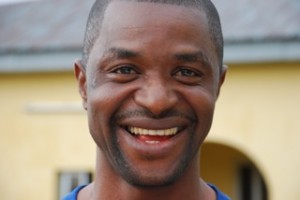Nothing here would be possible without the ground help of Emmanuel Ande Ivorgba, the director of NEEDSCI.org, a local non profit here in Jos, Nigeria dedicated to peacebuilding and youth leadership.
It is always a privilege to work with him and I am happy to call him my friend. His dedication in serving the youth of Nigeria is profound. He founded Creative Minds In’l Academy (CMIA) in 2007, the first school in Nigeria, dedicated to cultural preservation in addition to academics. That began our collaboration as we traveled in Nov 2007 to install an eGranary (a virtual library) and computer lab at CMIA.
